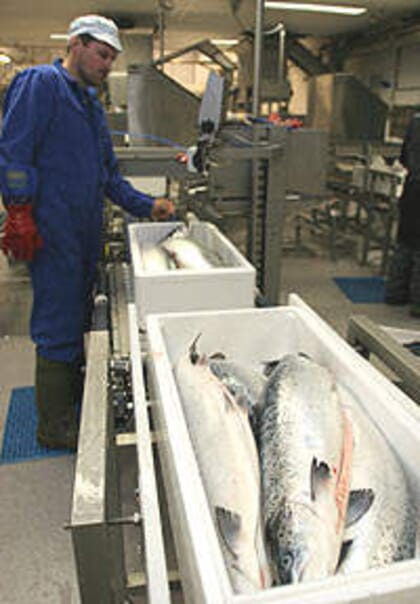
An investment of just 1 percent of the global seafood industry’s revenue into improved traceability could increase total profitability by 60 percent, according to Planet Tracker’s latest report, How to Trace $600 billion.
The report explores whether 100 percent sea-to-plate traceable seafood is a viable reality, with only 29 percent of global production currently traceability-ready, what it would take to achieve 100 percent, and what the implications would be for the industry at large.
Traceability is the ability to systematically gain detailed insight into a product’s history across every stage of the supply chain, revealing its origins and any treatments or transformations undergone. It enables companies to better measure and improve their environmental and social impact, as well as their overall production efficiency. The primary cost benefits uncovered by Planet Tracker take the form of reduced spend on food recalls, food waste and staff.
François Mosnier, head of oceans programme at Planet Tracker, comments: “Across the seafood supply chain, there’s a low average profit margin, meaning the total cost of production is really the main driver of end-prices. Cutting down on even a few areas of unnecessary expenditure, which can be identified through improved traceability, can thus result in significant profit boosts. Just a 1 percent investment could unlock a USD 600 billion-dollar boost in global seafood enterprise valuations.
“What’s more, our methodology for calculating potential savings was incredibly conservative – the true potential boost to global profits could in reality be much bigger. So. it’s not just the companies, but the financial institutions backing them who should be demanding change”.
The report identifies 23 investors who have over 5 percent of their equity portfolio in companies in the global seafood supply chain poorly rated for traceability.
Planet Tracker calls for all investors with exposed equity to the industry to ask six key questions of portfolio companies:
- What traceability systems are currently in place at the company?
- What is their scope, precision, breadth and depth ?
- How interoperable are the company’s traceability systems with those of suppliers and clients? Do they use GDST standards?
- What prevents the company from implementing robust traceability solutions on 100 percent of its products?
- What would be the investment, costs and benefits to become 100 percent traceable?
- How can investors and lenders support the transition towards being 100 percent traceable?
Planet tracker also argues that governments can also help by:
- Relocating harmful subsidies towards traceability investments
- Introducing comprehensive traceability-related regulation
The report builds on several past research reports by Planet Tracker into global supply chain traceability, including Traceable Returns. Implementing Traceability – Seeing through Excuses for seafood and Lifting the Rug for textiles.



